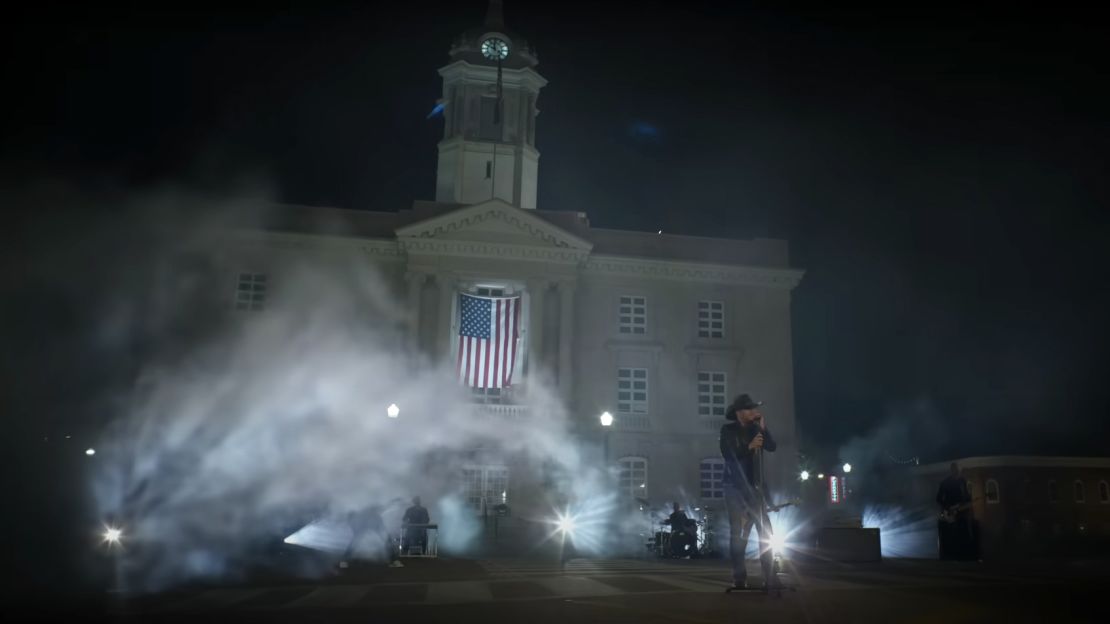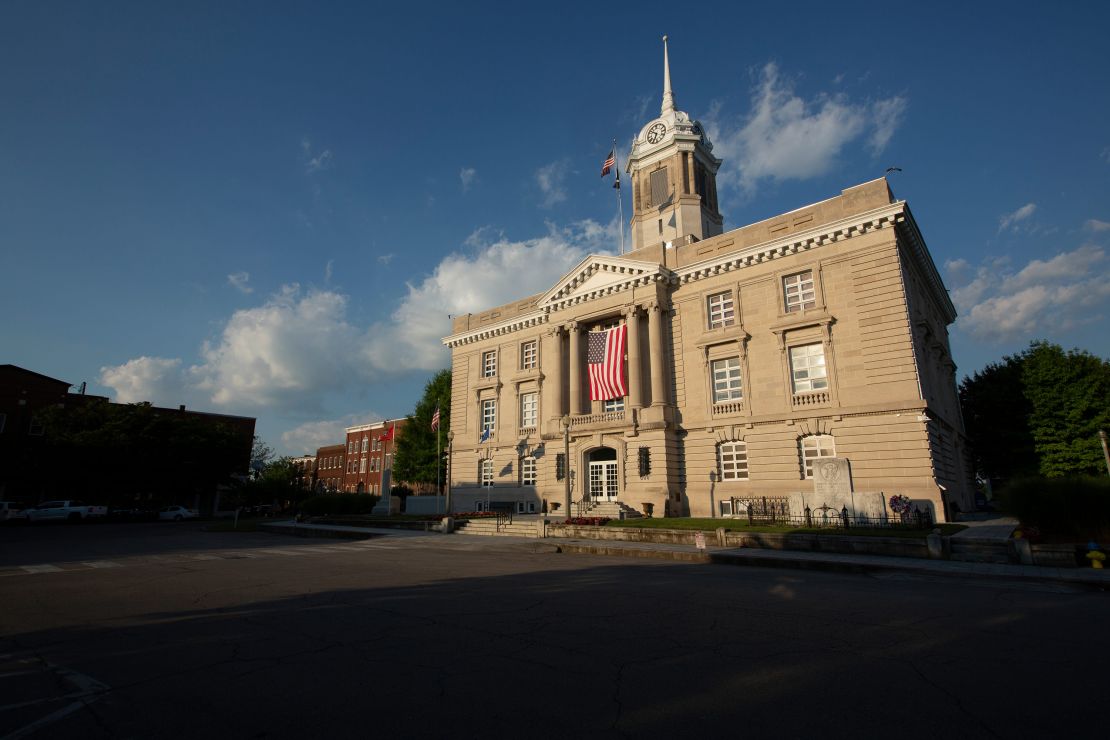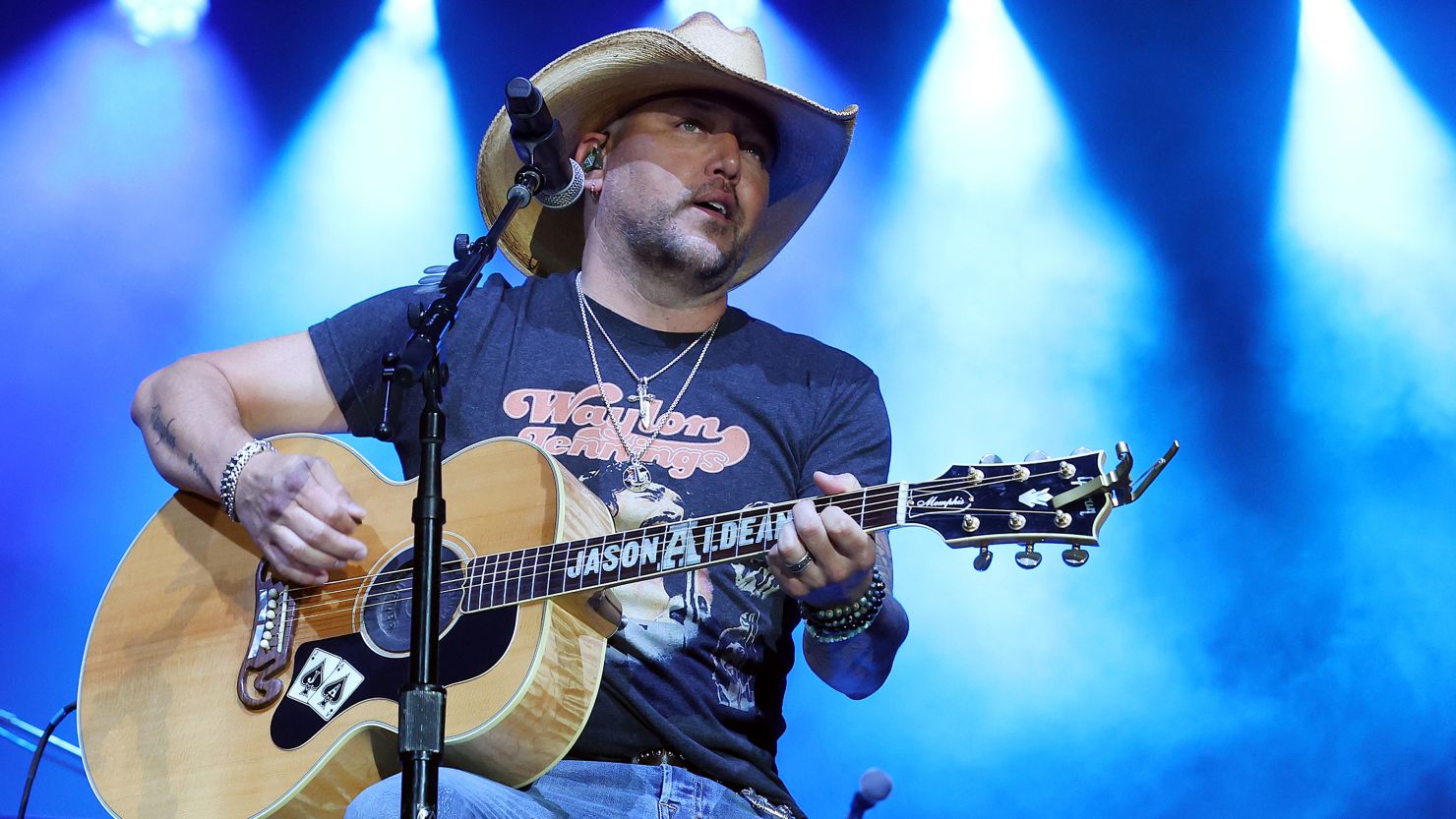Editor’s Note: Nicole Hemmer is an associate professor of history and director of the Carolyn T. and Robert M. Rogers Center for the Study of the Presidency at Vanderbilt University. She is the author of “Partisans: The Conservative Revolutionaries Who Remade American Politics in the 1990s” and cohosts the podcasts “Past Present” and “This Day in Esoteric Political History.” The views expressed in this commentary are her own. View more opinion on CNN.
It was mid-November 1927 when, at a Tennessee courthouse wrapped in patriotic decor to celebrate Armistice Day, a White mob seized a Black teenager named Henry Choate and hanged him from the building’s balcony. The accusations against him — that he had attacked a White girl — were unsupported but horribly routine. Many lynchings of Black boys and men followed accusations that White womanhood had been violated.

That same courthouse, again festooned in red, white and blue, serves as the backdrop for Jason Aldean’s new music video for the song “Try That in a Small Town,” a ballad that critics say promotes vigilantism and gun violence. In the video, an oversized American flag hangs down the middle of the courthouse, so large that it covers the balcony where Choate was murdered.
There’s no evidence that Aldean and the team behind the video knew what happened on that site in 1927. But the powerful symbolism underscores the song’s toxic message: that those who step out of line in Aldean’s small town — whether they “cuss out a cop” or “stomp on a flag” — will find themselves facing down “the gun that my granddad gave me.” (Never mind that desecrating a flag and swearing at a police officer are, for the time being, constitutionally protected actions.)
The song is a celebration of vigilantism, though Aldean denies it. He defends it as an ode to small-town America, but it is really a statement of entitlement — an assertion of who is allowed to make and enforce the rules, both as a matter of law and as a matter of extralegal violence.
These ideas have been intimately linked to country music, courthouses and conservatism for well over a century. And whether he admits it or not, both Aldean’s song and the courthouse where a teen boy was murdered serve as a reminder that historically, appeals to so-called law and order often rely just as much on White vigilantism as they do on formal legal procedures.

The courthouse where Choate was lynched is a particularly evocative emblem, not only because of the murder that occurred there but because the building itself, a county courthouse serves as a local symbol of justice — and who can access that justice.
That type of symbolism has been well understood for a very long time. During the era of Jim Crow and lynching, local committees erected Confederate statues at courthouses across the South, to make clear the sort of justice community members could expect. (After the White power rally in Charlottesville, Virginia in August 2017, a local activist started the Kudzu Project to protest the presence of Confederate statues at courthouses — including the courthouse in Charlottesville — because of the message they sent to nonwhite defendants.)
The same courthouses where Black defendants could be prosecuted, even executed, on the flimsiest of evidence were the same courthouses where, under Jim Crow, White juries refused to prosecute members of lynch mobs. As sites where vigilantism and law and order politics were conjoined, such courthouses serve as a reminder that law enforcement personnel often blurred the line between law and vigilantism as well — across the decades, some police officers have moonlighted as vigilantes, whether as members of the Ku Klux Klan or militias or White-power groups. (Around 15% of defendants charged for the January 6 attack on the Capitol have law enforcement or military backgrounds.)

That history makes Aldean’s disavowal of vigilantism ring hollow. In a carefully worded statement in response to the outcry over his song and its video, Aldean said “I have been accused of releasing a pro-lynching song … and was subject to the comparison that I (direct quote) was not too pleased with the nationwide BLM protests. These references are not only meritless, but dangerous. There is not a single lyric in the song that references race or points to it- and there isn’t a single video clip that isn’t real news footage -and while I can try and respect others to have their own interpretation of a song with music- this one goes too far.” But of course, musical artists — even those who rely on songwriters for their material — understand implicit meaning, symbolism and narrative. Aldean sings about his grandfather’s guns and warns that people who step out of line in his town won’t last too long; it does not require much skill or imagination to connect those dots.
And when it comes to the lawlessness that the video depicts, it is notable that the creators only included images of protests and street crimes. In a song that attacks those who spit on cops, there are no images of the January 6 mob attacking Capitol Police. Aldean, who was on stage in Las Vegas in 2017 when a gunman opened fire in the deadliest mass shooting in US history, does not include images of those types of lawless mass killings. He does not invoke the violence that tore apart small towns like Sandy Hook, Connecticut, or Uvalde, Texas. Instead, he warns that an unnamed “they” are coming for your guns (“Got a gun that my granddad gave me / They say one day they’re gonna round up”).
What is new here is not the defense of vigilantism, but the response. CMT, the country music cable network, has removed Aldean’s video from circulation. That may seem like a small thing. But the country music industry has a strong conservative streak, and while some musicians, like Johnny Cash, Dolly Parton and Garth Brooks (Cash, for instance, fought for penal reform and sang frankly about violent White supremacy in his album “Blood, Sweat, and Tears”), have had the star power to tout their progressive politics, cancel culture is far more likely to come for those who don’t fit the model of conservative White stars.
In the early 2000s, The Dixie Chicks (now The Chicks) had their albums burned and blocked from country radio play after their lead singer criticized then-President George W. Bush. Lil Nas X, a gay Black artist, was booted from the country charts when his song “Old Town Road” went viral; he was only allowed back when he recorded a remix of the song with country artist Billy Ray Cyrus.
In recent years, the country music industry has begun to make space for a more diverse set of artists. Inclusivity has meant less tolerance for overt racism and prejudice. Morgan Wallen was temporarily dropped from radio stations and country music events in 2021 after video emerged in which he used a racial slur. Aldean himself was dropped by his PR agency last year after his wife made anti-trans comments that Aldean endorsed.
Where there are consequences, there are cries of “cancel culture.” No sooner had Aldean’s video received criticism than the song moved to the top of the iTunes charts, and Aldean became the new cause celebre on the right. Radio host Glenn Beck immediately invited Aldean on his show, and Republican presidential candidate Vivek Ramaswamy vowed to play the song at future rallies.
But as the right attempts to rewrite the story of Aldean’s video as a case of cancel culture, recall what happened to Choate, and take a closer look at the courthouse where he was murdered by a mob. Remember the long history that undergirds Aldean’s song. That history has nothing to do with culture wars, and everything to do with what real justice looks like in the United States, and who has access to it.





